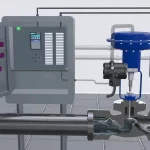Government loans are backed by the government and can be used for a variety of purposes, including home purchasing, disaster relief, college tuition, and opening a small business. They typically have more favorable terms than private loans, such as lower interest rates and more flexible credit requirements.
These types of loans are also more affordable and easier to qualify for than conventional mortgages. There are three main types of government backed loans:
Guaranteed by the government
Government backed loans are a great way to secure funds when you may not qualify for a conventional loan. They are guaranteed by the federal government and offer a variety of benefits for the borrower. These loans are often used for home purchases, to buy or refinance a car and for student and personal debt consolidation. Government-backed loans can also be used to renovate a home or to start a business. These types of loans can be issued by the government or through private banks that work with the federal agency to administer the program. Examples include the Federal Housing Administration, Department of Veterans Affairs and the U.S. Department of Education’s student loan programs.
Conventional mortgage loans do not receive any type of government backing or insurance and are therefore considered riskier by lenders. In 2018, conventional mortgage loans accounted for 75% of all home purchases. However, the Department of Veteran Affairs’s VA home loan program is a government-insured loan and offers significant benefits to active duty military members, veterans and their spouses.
These benefits include lower interest rates and no required down payment. Unlike traditional mortgages, these loans are not available to everyone and may have strict eligibility requirements. Other 정부지원대출 are subsidized student loans, which pay the borrower’s interest while they are in school or during their grace periods following graduation.
Lower down payment requirements
Government-backed mortgage loans are a great option for first-time home buyers and borrowers with less than perfect credit. While conventional lenders prefer a credit score of at least 620, many government loan programs require lower scores and have flexible debt-to-income ratios. Having the federal government back the mortgage loan reduces the risk for lenders, which allows them to offer more competitive terms to homebuyers.
In addition to low down payment requirements, government-insured loans also offer reduced closing costs and are assumable, meaning the mortgage can be transferred to a new homeowner without penalty. There are several different types of government-backed mortgage loans, including the FHA, VA, and USDA loans. These loans can help buyers purchase or refinance a new or existing home.
Despite their popularity, some people still believe that government-backed mortgages are a good choice only for those with low income levels or a poor credit history. However, this is far from the truth. Government-backed mortgage loans are a great way for borrowers to get the financing they need and achieve their financial goals, regardless of their credit history or income level.
If you’re interested in a government-insured mortgage, consult with a trusted mortgage partner who can explain the pros and cons of these options and provide guidance for your specific situation. While government-backed mortgages can be a great option for many people, they have strict eligibility requirements and may come with higher mortgage insurance fees than traditional loans.
Lower credit score requirements
Government home loans, like FHA, VA and USDA 대출이자계산기, allow you to have a lower credit score than conventional mortgages. The reason for this is that government-insured mortgages provide lenders with an added layer of protection against borrower default, so they can be more lenient in their qualification requirements. Conventional lenders may prefer a DTI of 36% or less, but the VA and USDA programs will allow you to qualify with a DTI up to 57%.
While there are many benefits of a government loan, it’s important to remember that they aren’t for everyone. They are generally only available to active duty military service members, reservists and National Guard members, as well as those who have served in the military or spouses of those who have. They can also be used to purchase a manufactured home, although there are some restrictions.
The most popular type of government-insured mortgage is the VA loan, which is available to active duty military personnel, veteran service members and surviving spouses. It offers a low interest rate, no down payment requirement and no monthly mortgage insurance. It’s a great option for first-time buyers and can help them avoid paying higher mortgage rates that they wouldn’t have to pay with a conventional mortgage. This type of loan is also assumable, which means that it can be transferred to a new buyer at any time.
Stricter requirements
While government-backed loans are more affordable, have lower interest rates and are easier to qualify for than conventional mortgages, they have stricter requirements than those of private loans. This is because the backing agency insures or guarantees the loan amount, protecting lenders in case of borrowers defaulting on payments. These protections remove a significant amount of risk, which allows mortgage lenders to offer borrowers better terms and lower-to-no down payment options.
The most common government-backed mortgages are FHA loans, USDA rural development loans and VA mortgages for active military personnel and their families. However, these loans are not available for everyone. Borrowers who seek these types of financing should consult a qualified mortgage lender like Contour Mortgage to determine if they can qualify. These lenders will review the borrower’s credit history, debt-to-income (DTI) ratio and previously resolved financial issues.
Unlike private loans, government-backed mortgages can only be used to finance your primary residence. Conventional loans can be used to finance a secondary home, condo project, co-op and single-wide mobile homes on permanent foundations. The rules and requirements for each type of mortgage vary, so it’s important to consult a trusted mortgage professional about eligibility, qualifications, down payment and credit requirements. The best mortgage lender will work with borrowers to help them achieve their homeownership goals and find the right type of financing for their individual needs.













